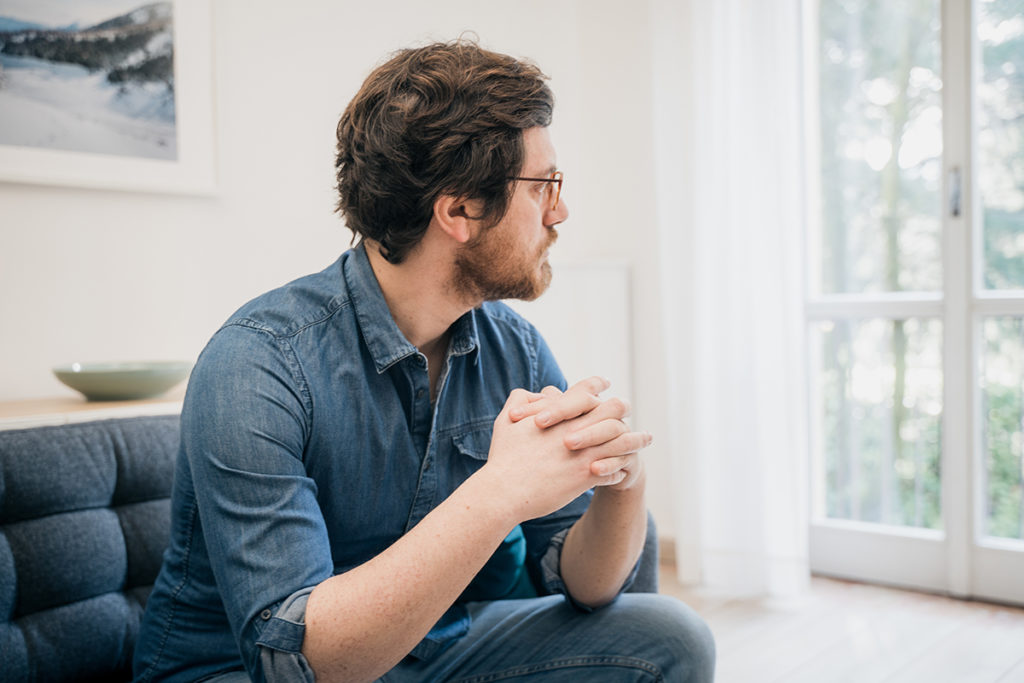Procrastination can manifest in many ways, such as dodging important tasks, putting off decisions, or avoiding commitments. For many people, it’s not just a bad habit but something that can really get in the way. It can also be a symptom of underlying anxiety. When procrastination becomes chronic, it disrupts productivity, relationships, and mental well-being.
At The Right Step, we understand how interconnected mental health challenges like anxiety and procrastination can impact those struggling with addiction—and we’re here to help. Our anxiety treatment program is one way we support our clients on their path to recovery and wellness.
Getting stuck in the cycle of anxiety and procrastination can feel overwhelming, but building your knowledge can help. It’s essential to recognize how the two are linked, how decision paralysis comes up in day-to-day life, and how co-occurring addiction can develop at the same time.
Understanding the Link Between Anxiety and Procrastination
Anxiety and procrastination often show up together. Ever wonder why? Anxiety can make it hard to make decisions, leaving you feeling stuck, overwhelmed, and unsure of where to start. Procrastination, in turn, offers temporary relief by postponing responsibility—but it ultimately adds to the cycle of stress and self-doubt.
For many, anxiety creates feelings of fear around failing or making the “wrong” choice, which makes procrastination seem like a safer option. Did you know that anxiety affects 44% of adults in the U.S.? What’s surprising is that over 10% of Americans experience mild to severe anxiety without even realizing it.1
While occasional procrastination isn’t necessarily harmful, chronic procrastination driven by anxiety can result in serious consequences, including lower productivity, poor health, and missed opportunities. Signs that your procrastination may be anxiety-driven can include:
- You feel paralyzed by perfectionism and fear of mistakes
- You often avoid or delay tasks associated with high expectations
- Long to-do lists leave you feeling overwhelmed and panicked
- Delays lead to guilt, self-criticism, and worsened anxiety
Recognizing the link between anxiety and procrastination is the first step toward building healthier habits that reduce stress.
What Is Decision Paralysis?
If you’ve found yourself stuck between choices or unable to commit due to indecision, you’ve likely experienced decision paralysis. This phenomenon—closely related to both anxiety and procrastination—arises when the fear of making the wrong choice creates such mental overwhelm that you avoid acting altogether.
Decision paralysis can look like this:
- Obsessing over small details instead of seeing the big picture
- Avoiding decisions until external pressure forces action
- Seeking perfection in every choice, no matter how minor
Decision paralysis adds to the weight of anxiety and further fuels procrastination. Without intervention, navigating day-to-day life can lead to a sense of helplessness.
Can Addiction Co-Occur with Anxiety?
Yes—and it’s more common than you might think. Anxiety and procrastination-driven avoidance can lead individuals to seek temporary relief through substances like alcohol or drugs. Over time, this creates a cycle of co-occurring anxiety and addiction, where substance abuse worsens mental health struggles and vice versa.
In the U.S., 35% of adults aged 18 and older with a mental health condition also experience a substance use disorder (SUD). Commonly co-occurring mental health issues include anxiety, depression, post-traumatic stress disorder (PTSD), psychotic disorders, and borderline and antisocial personality disorders, among others.2 This interplay reinforces the importance of treating anxiety and addiction simultaneously—a focus of dual diagnosis treatment programs.
How to Manage Procrastination in Daily Life
Breaking the procrastination-anxiety cycle takes intentional effort and, often, professional support. Here are some strategies to begin taking control of your time and mindset.
Break Tasks into Manageable Steps
Large tasks can feel overwhelming, but breaking them into smaller, more achievable steps can make them seem less intimidating. Consider focusing on one small win at a time.
Set Realistic Goals
Perfectionism often accompanies anxiety and procrastination. Accept that not every task requires perfection—sometimes, “good enough” is all you need.
Prioritize Self-Care
Taking care of your mental health makes it easier to manage stress. Incorporate regular exercise, mindfulness practices, and a consistent sleep routine into your life.
Create External Accountability
Tell someone you trust about your goals to create accountability. Knowing you’ve shared your plans can motivate you to follow through.
Seek Professional Support
If anxiety and procrastination feel unmanageable, professional treatment can help. Structured programs provide tools and therapy geared toward long-term change.
How Dual Diagnosis Treatment Can Help
Anxiety-related procrastination, decision paralysis, and substance use don’t have to define your life. At The Right Step, we offer dual diagnosis treatment—which includes our anxiety treatment program—to address both mental health challenges and addiction simultaneously.
Our compassionate team provides therapies like cognitive-behavioral therapy (CBT) to target anxiety patterns, build healthier habits, and disrupt cycles of procrastination. By focusing on the whole person—not just superficial symptoms—we equip clients with coping tools that work in real-life scenarios.
Recovery isn’t a solo pursuit. If anxiety and addiction are affecting your life, it’s never too late to seek help.
Connect with The Right Step and Get the Anxiety Treatment You Need Today
When anxiety, procrastination, or addiction feel overwhelming, you don’t have to face it alone. At The Right Step, we’re here to help you find the support, tools, and community you need to take back control and move forward. You don’t have to wait—take that first step today. Contact our team online or call 17135283709 today to learn more about our treatment programs in Texas. We’re here for you.
Footnotes:






